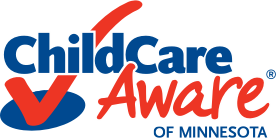Why Should We Engage in Early Childhood Public Policy?

Public policy work is daunting. Messy. Confusing. The pace of change is slow and sometimes things even go in reverse. It takes a lot of time and energy. But it is also critical work for the children and families that we serve, and our society. As a colleague of mine used to say, “if you aren’t at the table you are on the table.” I don’t know about you, but I would rather be at the table.
And, despite the challenges, working on public policy can be incredibly empowering.
For the past 12 years, I have been part of a coalition effort called the CARE Fellowship. This 9-month program draws together people who work in all aspects of early childhood and school-age care and education. Each year, up to 15 participants meet monthly to learn about the history of early care and education policy, how public systems work, and how the Fellows can help to facilitate change.
About three-fourths of the way through the program, we have a lobby day at the state capitol and there is lots of trepidation. But then, something transformational happens. Not only do our Fellows learn that this process is not as scary as they thought, but also, they realize that they have the information and the expertise that their legislators need. They grow in confidence as well as knowledge, and that knowledge grows into power. After the program is finished, our CARE Fellowship graduates testify in hearings, organize in their communities, and even run for local and state office.
Most of all, they help to spread the word and inspire others to do this important work. They embrace the concept that “advocate” is not a job description, it is a mindset.
